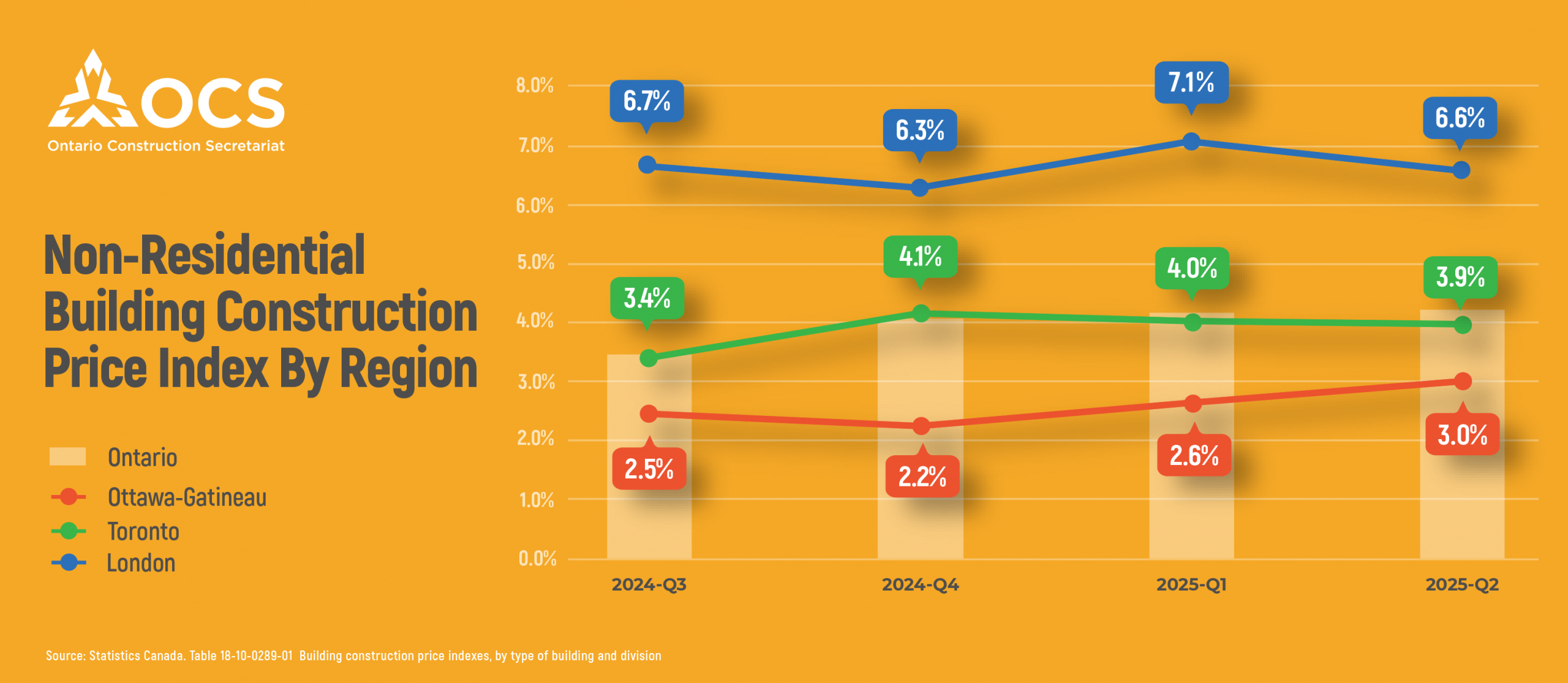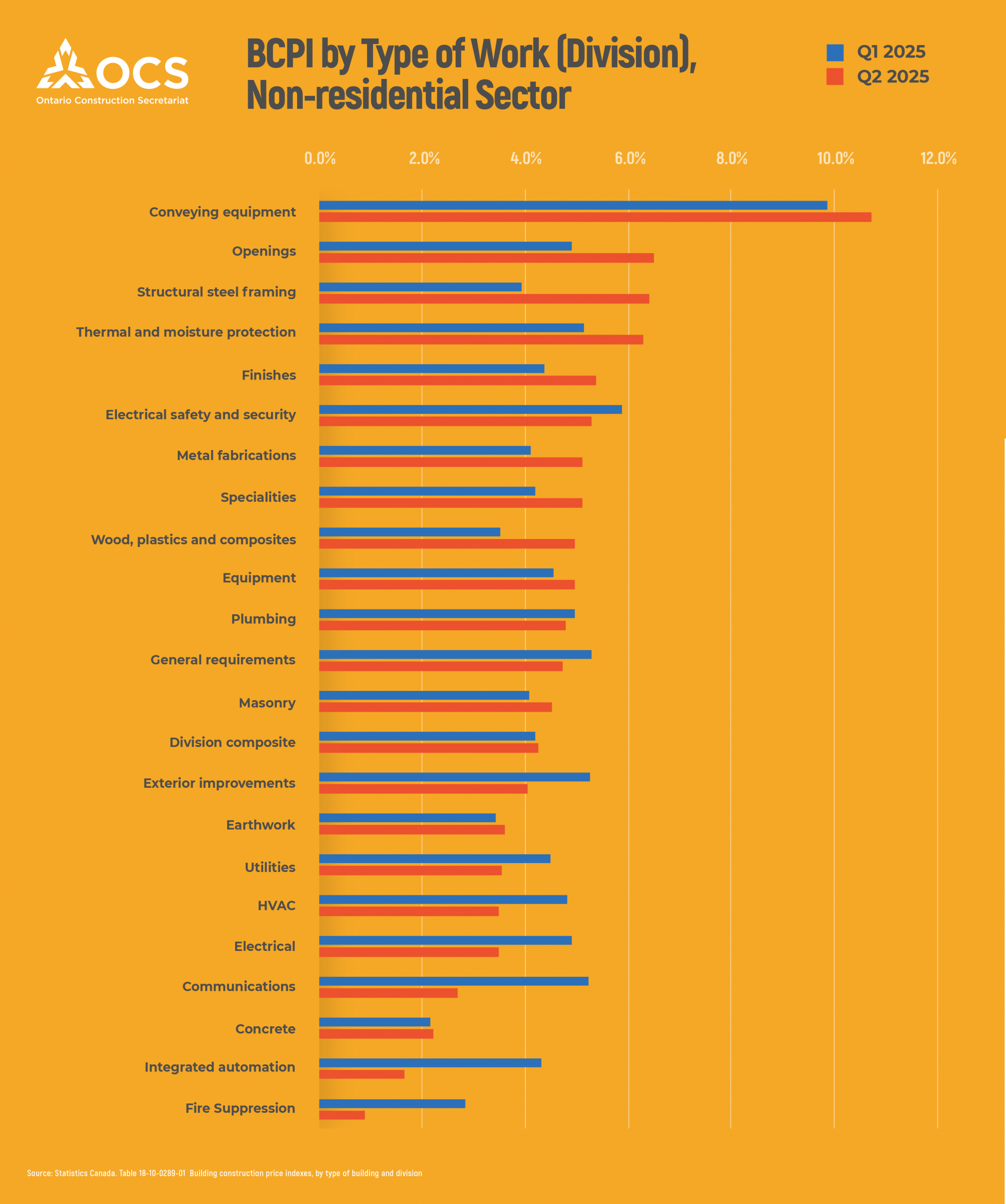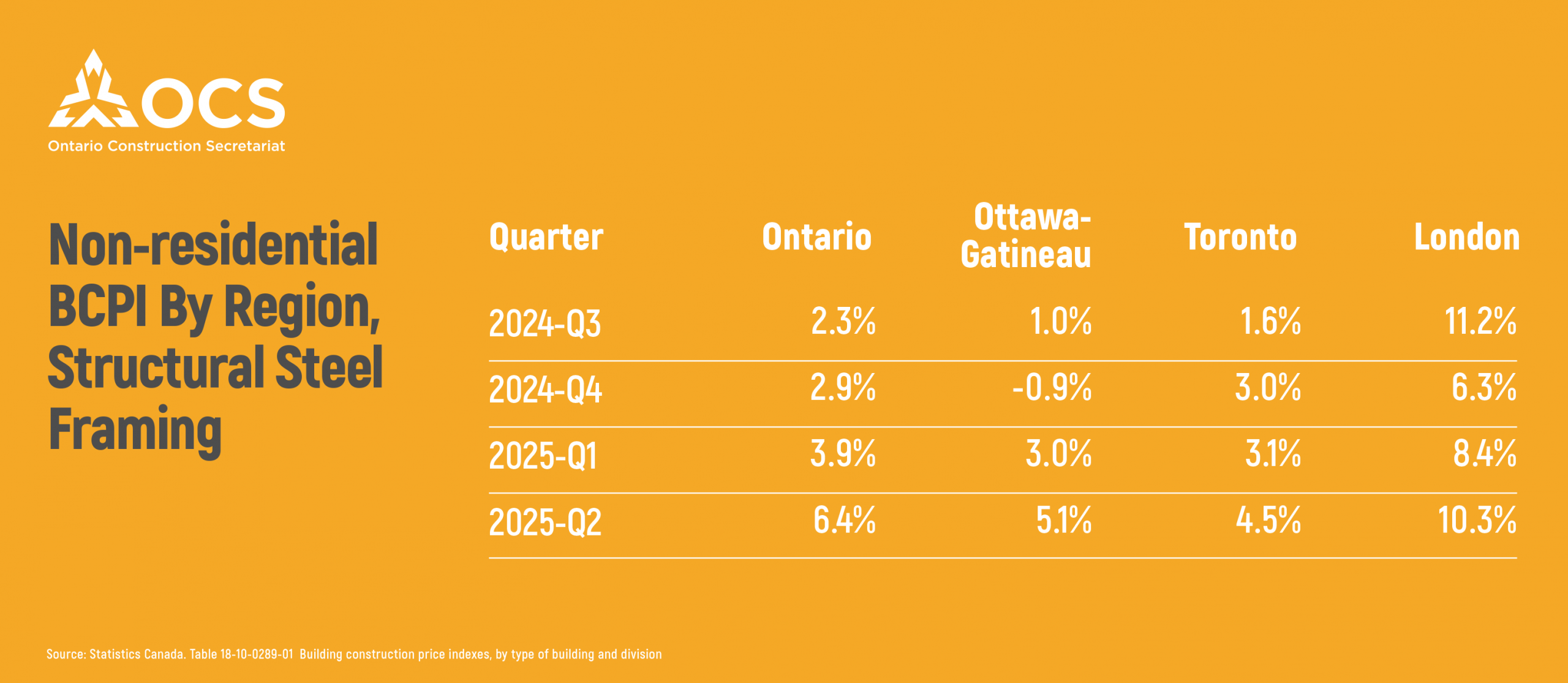


According to an update by the Ontario Construction Secretariat (OCS), non-residential BCPI inflation was 4 per cent year-over-year in the second quarter of 2025.
Inflation across Ontario census metropolitan areas was varied, with Ottawa-Gatineau at the low end and London at the high end. Conveying equipment had the highest inflation at 10.7 per cent, while structural steel framing inflation was at 6.3 per cent.
Overall Ontario BCPI inflation in the second quarter of 2025 came in at 4 per cent, little changed from the 4.2 per cent in the first quarter.
By census metropolitan area (CMA), Ottawa was the lowest at 3 per cent, while London saw the highest at 6.6 per cent. According to the OCS, Toronto BCPI inflation reflected the Ontario average.
Ottawa’s increases were primarily in earthwork at 6.9 per cent and structural steel framing, which was at 5.1 per cent, was up from 3 per cent in Q1.
Toronto saw the most inflation in conveying equipment at 11.1 per cent and openings at 6.8 per cent, up from 5 per cent. London experienced the largest year-over-year price increase in structural steel framing at 10.3 per cent and concrete at 9.8 per cent, although it was down from 10.5 per cent.

The highest inflation levels came from conveying equipment at 10.7 per cent, openings at 6.5 per cent, which was up from 4.9 per cent, structural steel framing at 6.4 per cent, up from 3.9 per cent, and thermal and moisture protection at 6.3 per cent, up from 5.1 per cent.
Both electrical and HVAC saw somewhat lower inflation, down from around 5 per cent in the first quarter to 3.5 per cent in the second.

For conveying equipment, the inflation came from Toronto at 11.1 per cent and London at 9.1 per cent, whereas Ottawa-Gatineau was down substantially at 3 per cent, down from 6.1 per cent.
Openings work was up mainly in Toronto at 6.8 per cent, up from 5 per cent. The OCS noted that structural steel framing work was up in all Ontario CMAs.

According to Statistics Canada, cost pressures were partly due to disruption caused by tariffs and counter-tariffs. It was reported that uncertainty made it more difficult to obtain contracts, which contributed to project start delays. However, decelerating activity in areas such as Toronto put downward pressure on costs.